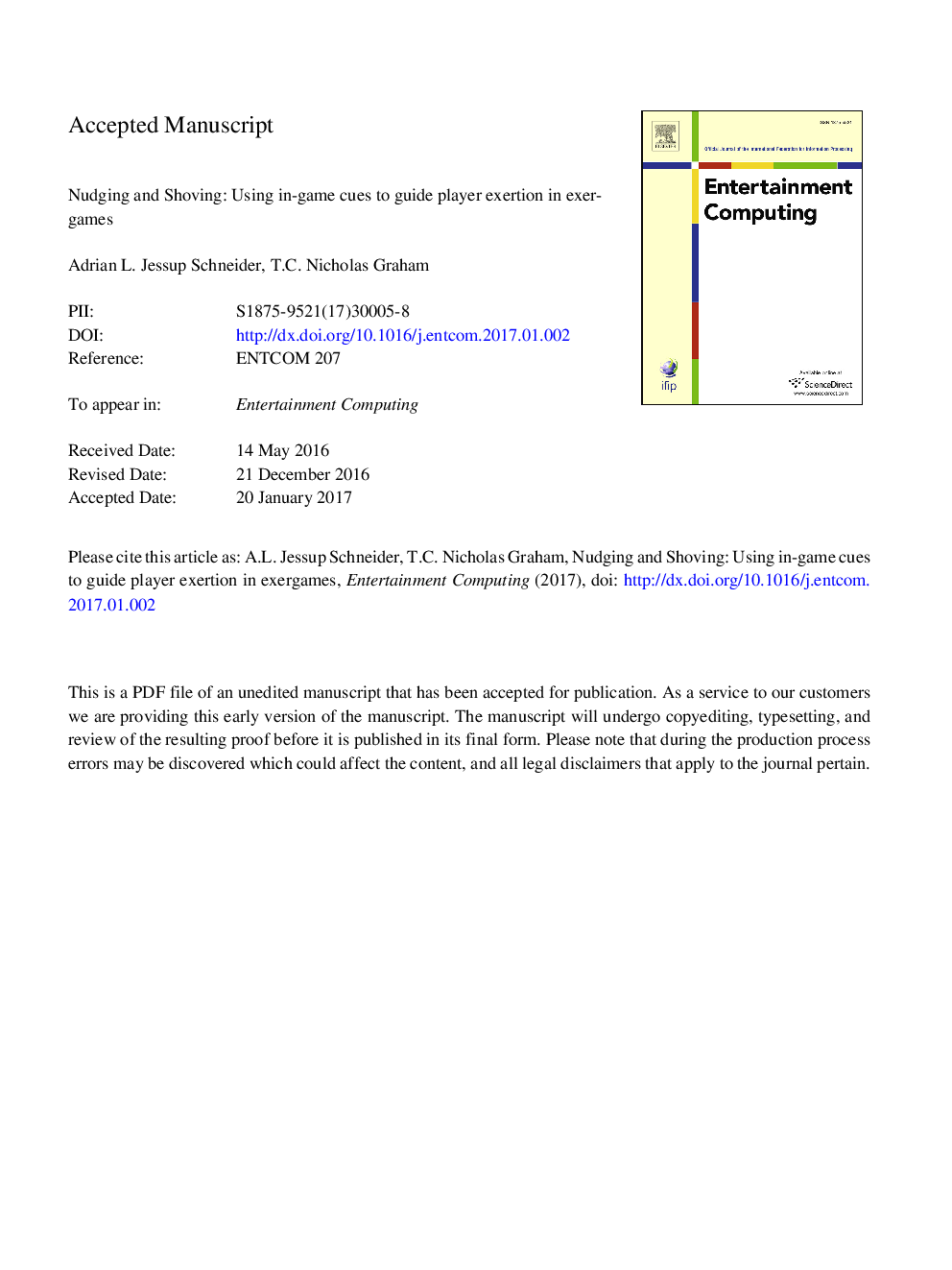| Article ID | Journal | Published Year | Pages | File Type |
|---|---|---|---|---|
| 4942872 | Entertainment Computing | 2017 | 53 Pages |
Abstract
Players of exergames sometimes over-exert, risking adverse health effects. These players must be told to slow down, but doing so may distract them from gameplay and diminish their desire to keep exercising. In this paper we apply the concept of nudges to keeping players from going too quickly, and describe the effective use of nudges through a set of four design principles. We demonstrate two exergames using nudges to persuade players to slow down. We show that nudges are highly effective in games where players are not strongly incented to work hard. We also show that, even in high-energy games, adding negative consequences to the nudges, creating “shoves”, maintains the nudges' power. Players reported that the nudges and shoves motivated them to slow down, and fit naturally into the games.
Related Topics
Physical Sciences and Engineering
Computer Science
Artificial Intelligence
Authors
Adrian L. Jessup Schneider, T.C. Nicholas Graham,
